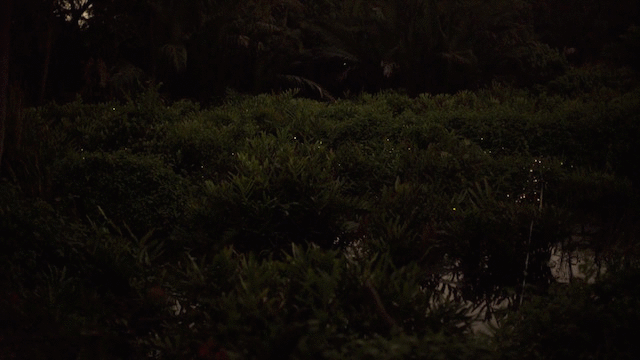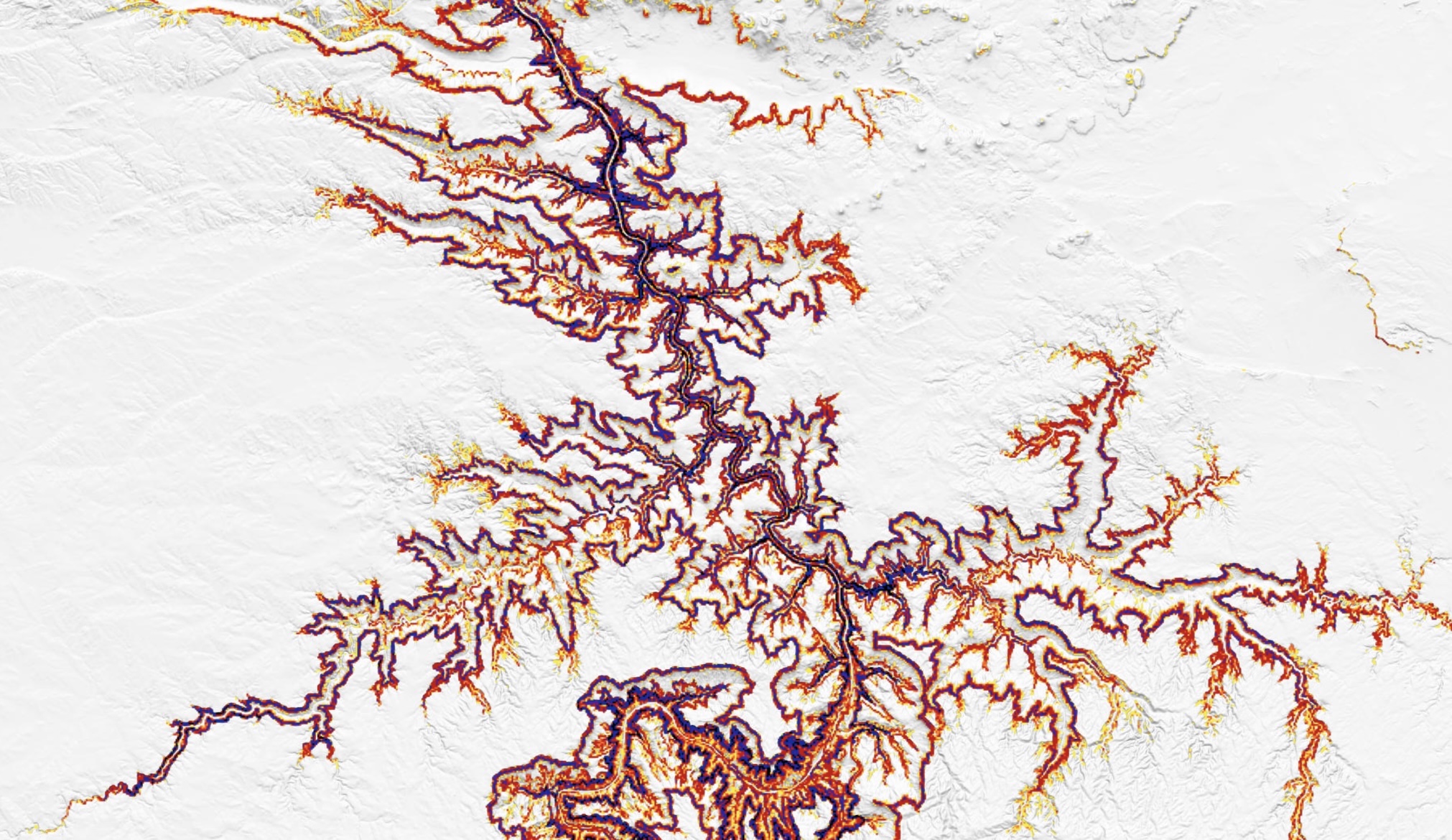physis
Physics, at its origin, was φύσις — the study of nature.
In an age preoccupied by quantum computing and dark matter, is there no mystery left in the world that we experience? I think there is, such as in the iridescence of a butterfly wing. This was the starting point of my PhD at Yale.
Physics is a framework — to think about the world and experiment with it. It's a toolkit to understand phenomena through fluctuations, correlations, and perturbations. It's a quest for patterns and their underlying mathematical principles. The essence of physics is about universality.
emergence
One concept of particular interest to me is called emergence. Subtitle: more is different. The phrase was coined by P. W. Anderson. What does it mean?
 Can you see the sunset on the Toiyabe Mountains from just a few pixels?
Imagine you are looking at a screen from very close.
You see individual pixels and maybe distinguish small features, like blobs and curves.
But you could scan the entire screen without ever noticing the beautiful landscape on display, only
perceptible if you zoom out.
Or: open Moby Dick and read a few words at a time.
Close the book, open again; do this again.
You could go like this for weeks without getting the experience of reading one of the most tantalizing tales of American literature.
Can you see the sunset on the Toiyabe Mountains from just a few pixels?
Imagine you are looking at a screen from very close.
You see individual pixels and maybe distinguish small features, like blobs and curves.
But you could scan the entire screen without ever noticing the beautiful landscape on display, only
perceptible if you zoom out.
Or: open Moby Dick and read a few words at a time.
Close the book, open again; do this again.
You could go like this for weeks without getting the experience of reading one of the most tantalizing tales of American literature.
Or: does a symphony make any sense with a few silenced notes or instruments?
Emergence is the subtle idea that when many individual units (pixels, words, waves, molecules, people...) interact together, they collectively develop properties that are only evident at the scale of the ensemble. The whole is more than the sum of the parts.
Initially introduced to describe typical 'physics' behavior, like the sudden freezing of water, emergence is now seen everywhere around us: the stripes of a zebra, the self-organization of cities, the honeycombs of a bee colony...
animal collective behavior
I discovered, by happenstance, that there is beautiful physics in the collective behavior of animals: starling murmurations, sheep flocks, reindeer cyclones, to name a few. It is a matter of emergence: how a group of individuals in social interaction create patterns that they are not even aware of? You can also think of traffic jams, although it's not quite as glamorous.
 Firefly synchrony, by Robin Meier.
While a the University of Colorado, I spent many years studying the peculiar phenomenon of firefly flash
synchronization.
Synchrony is ubiquitous in the universe, but expresses itself in various ways.
I chased and recorded fireflies all across the US, from North Carolina to Arizona.
Firefly synchrony, by Robin Meier.
While a the University of Colorado, I spent many years studying the peculiar phenomenon of firefly flash
synchronization.
Synchrony is ubiquitous in the universe, but expresses itself in various ways.
I chased and recorded fireflies all across the US, from North Carolina to Arizona.
Their millions of flashes, blinking like Christmas lights or breaking into chaos, reveal a network of interactions — and a whole social dynamics hiding in the dark of the night.
large language models
LLMs, the technical term for advanced chatbots like ChatGPT, are also a type of emergent system: with enough parameters and training, they can write and reason and create. More details about the connection between LLMs and physics in AI.
 Fractality of the Grand Canyon
Fractality of the Grand Canyon
universality
I remain perplexed by the ubiquity of certain motifs across the universe: fractals, Turing patterns, power laws, synchrony, symmetries...
Please reach out if you'd like to explore these topics together.